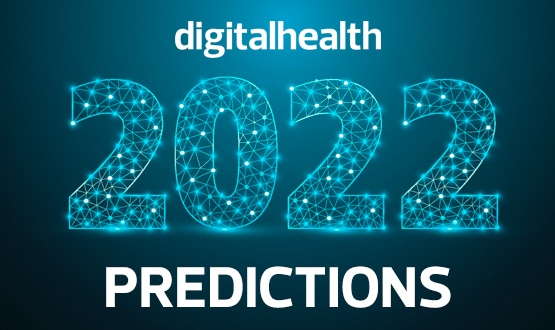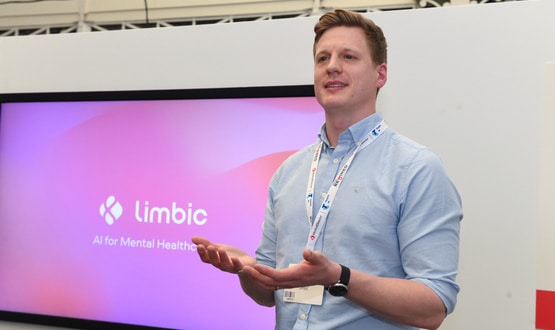2022 predictions: Digital health leaders look ahead
- 4 January 2022

After another momentous year for digital health, we gave a number of digital health leaders the opportunity to predict what 2022 will bring.
Here’s what they anticipate:
Saffron Cordery, deputy chief executive of NHS Providers
“We predict that 2022 will be the year NHS trusts truly begin to align their digital and broader improvement strategies. Through our Digital Boards programme, delivered in partnership with Public Digital, commissioned by HEE and supported by NHSX, we have heard how trust leaders are identifying the close relationships needed between digital transformation and quality improvement initiatives.
“We also know that incoming ICS leaders will be looking to place the digital and data agenda at the heart of system working, with new and exciting opportunities to collaborate and share data.”
Nilesh Bharakhada, clinical director for health and care at PRSB
“Delivering integrated care through joined up health and care systems will be the key focus in 2022 across England, Scotland and Wales. In England, ICSs will aim to deliver services that are organised around individuals rather than leaving people to navigate organisational boundaries between care settings. Although further ahead, integration will continue to be a focus for Scotland and Wales, ensuring that their integration is effective and delivered at pace.
“Digital is fundamental to delivering integrated care. As PRSB’s clinical director, I led on our Personalised Care and Support Planning Standard, which makes a person’s care plan shareable with everyone involved in their care. Information sharing enables integrated care but digital maturity, IT funding and workforce digital skills all need to be addressed if digital transformation is going to happen at pace and scale.
“The use of wearables and remote monitoring will continue to grow in all 4 Nations, empowering people to take control of their care. This could signal a powerful shift to preventive care, which the NHS has struggled to deliver, albeit issues such as data privacy must be resolved.”
Ruth Bradbury, senior NHS navigator at DigitalHealth.London
“There’s no denying that 2021 has been another challenging year for the NHS and social care, but digital technology has once again been the redeeming feature, with more impactful innovations than ever before coming to the forefront of the Covid-19 response and recovery.
“In 2022, we believe digital will continue to bring opportunities for longstanding NHS and social care challenges and Covid-19 recovery, as well as in responding to matters highlighted by the pandemic such as variation across the country and tackling health inequalities.
“Participants in our recent 5th birthday conversation, agreed that it was too soon to absorb the term “digital health” into talking about healthcare as a whole. But we believe that as technologies continue to embed during 2022, digital health will go further on its journey to becoming “Business As Usual” for NHS and care staff and patients.
“We also foresee that in the coming year the digital health ecosystem will become a more global community, sharing solutions to the challenges facing health and care systems across borders.”
Bruno Botelho, deputy COO and director of digital operations at Chelsea and Westminster Hospital NHS Foundation Trust and co-lead of the Trust’s flagship CW Innovation programme, run in partnership with their charity CW+
“My prediction for 2022 is that the digital ecosystems across the health and care network will become increasingly connected and less complex, aiding recovery from the pandemic and managing the number of patients waiting for treatment. Both require an urgent response and manual and time-intensive processes are inadequate.
“We have already seen huge advances in addressing these challenges at our Trust as a result of the integration of separate clinical and non-clinical IT systems into one platform under a programme of works called Improving Elective Care Coordination for Patients, which is currently being piloted across a number of other trusts as part of the national IECCP Programme.
“I predict that this interoperability will increasingly support better visibility and ownership of the patient pathway amongst healthcare staff. Once combined with data mining technology, staff will be supported in making real-time decisions based on evidence-based data, probabilities and risk.
“Overlay increased integration with remote monitoring technology and digital patient communication tools, and the patient will also become more informed – and empowered – in near real-time and more accurately to manage their own care.”





4 Comments
This article provides a vision of collaborative patient care between primary, secondary and national healthcare settings. It’s a good start to achieving the utopia but strongly believe it’s the right way forwards for the patient centred care. Data is generated at all levels by Clinical coding and other data sets better information sharing and collaboration is the key. Digital health is the future for sure.
This article presents a NHS digital utopia. But they read more like “wishes” than “predictions”: predictions are models of future outcomes that should based firmly on past/present evidence (and who better to know that than digital leaders?), but I can’t reconcile the evidence on the ground with these “predictions”. Where is the “digitally-enabled workforce” going to come from that can shape this predicted future state? How long does it take to improve the NHS tech-savviness and data literacy that will make use of innovation and drive these predicted changes (especially with an exhausted and shell-shocked workforce)? Where are the plans (past or present) that will take everyone along on this journey to our digital utopia?
Fantastic insight provided here. I agree and fully expect digital healthcare systems to become far more joined up. ‘Data’ will also finally become a more trusted and insightful tool.
Safely joined up tools need clinical input and better data quality which means more involvement of frontline colleagues.
Resistance to change by frontline personnel is growing due to burnout and continuing COVID priorities. Capacity to improve skills is simply not there whilst sickness levels remain volatile and the recruitment funnel continues to remain unresolved.
We are in pandemic wave 4 of 6 – we likely have have another 2 years of disruption to run yet. I agree electives should be a priority but just today national news sites are reporting more cancelled planned care so until we see COVID under control the adoption of new technology solutions and joining of data at the frontend through better designed solutions may have to take a back seat.
Basic staffing is the key concern at this time.
The lack of ability to obtain new kit for up to a year may refocus minds on improving what infrastructure and applications we have in the meantime with reduced input of clinical colleagues.
Comments are closed.